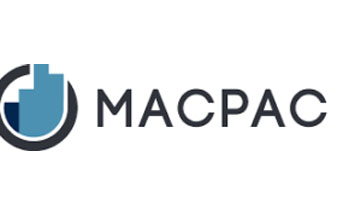SNAP Asks PA Delegation for COVID-19 Aid
SNAP has written to Pennsylvania’s congressional delegation to request additional COVID-19 legislation between now and the end of the year to help Pennsylvania safety-net hospitals respond to the health care and financial challenges posed by the pandemic.
 In its letter, SNAP asked Congress for:
In its letter, SNAP asked Congress for:
- additional funding for the Provider Relief Fund for assistance to hospitals;
- extension of the temporary moratorium on continued implementation of the 2011 Budget Control Act’s Medicare sequestration; and
- the suspension of any other federal cuts for health care providers, such as the scheduled reduction of Medicaid disproportionate share (Medicaid DSH) allocations to the states.
Read SNAP’s message to Congress.

 The October 2020 MACPAC meeting opened with a panel discussion on restarting Medicaid eligibility redeterminations when the public health emergency ends. It included Jennifer Wagner, director of Medicaid eligibility and enrollment at the Center on Budget and Policy Priorities; René Mollow, deputy director for health care benefits and eligibility at the California Department of Health Care Services; and Lee Guice, director of policy and operations at the Department for Medicaid Services, Kentucky Cabinet for Health and Family Services.
The October 2020 MACPAC meeting opened with a panel discussion on restarting Medicaid eligibility redeterminations when the public health emergency ends. It included Jennifer Wagner, director of Medicaid eligibility and enrollment at the Center on Budget and Policy Priorities; René Mollow, deputy director for health care benefits and eligibility at the California Department of Health Care Services; and Lee Guice, director of policy and operations at the Department for Medicaid Services, Kentucky Cabinet for Health and Family Services.

 In the guidance, the Centers for Medicare & Medicaid Services explains that because of several court rulings, states can decide for themselves whether to offset third-party payer payments from costs in their Medicaid DSH calculations for periods prior to June 2, 2017 but that beginning with that date, CMS will enforce its own interpretation of the policy.
In the guidance, the Centers for Medicare & Medicaid Services explains that because of several court rulings, states can decide for themselves whether to offset third-party payer payments from costs in their Medicaid DSH calculations for periods prior to June 2, 2017 but that beginning with that date, CMS will enforce its own interpretation of the policy. The Medicaid and CHIP Payment and Access Commission kicked off its December meeting with highlights from its forthcoming issue of MACStats: Medicaid and CHIP Data Book, due out December 18, 2019. MACStats brings together statistics on Medicaid and State Children’s Health Insurance Program (CHIP) enrollment and spending, federal matching rates, eligibility levels, and access to care measures, which come from multiple sources.
The Medicaid and CHIP Payment and Access Commission kicked off its December meeting with highlights from its forthcoming issue of MACStats: Medicaid and CHIP Data Book, due out December 18, 2019. MACStats brings together statistics on Medicaid and State Children’s Health Insurance Program (CHIP) enrollment and spending, federal matching rates, eligibility levels, and access to care measures, which come from multiple sources.